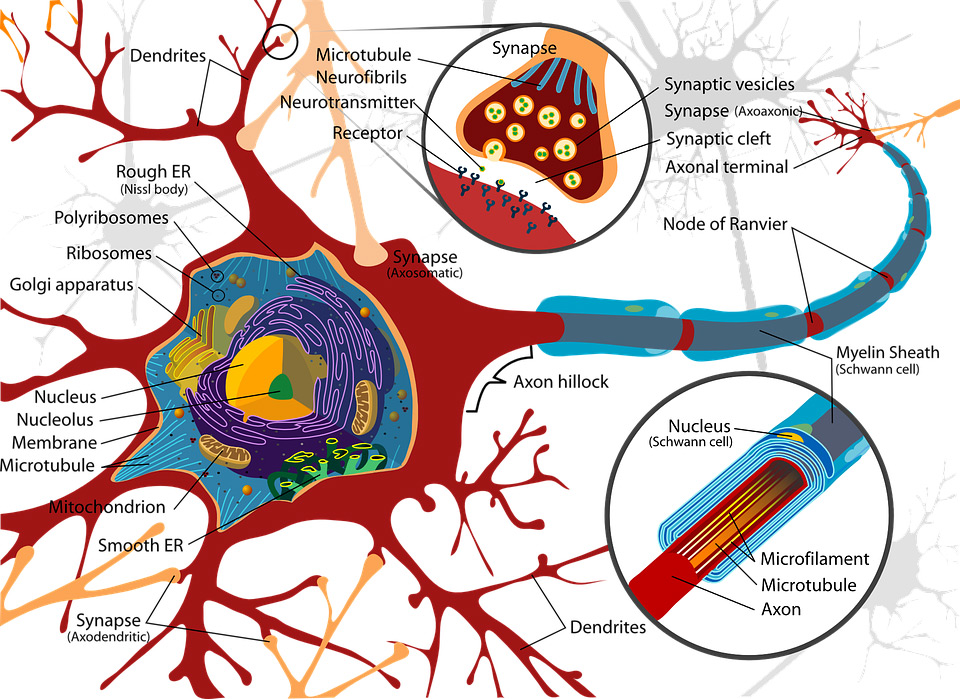
Photo – Clker-Free-Vector-Images – pixabay.com
In 2017, the U.S. National Academies of Sciences, Engineering, and Medicine released a report entitled Preventing Cognitive Decline and Dementia which highlights three measures to reduce cognitive decline including cognitive training, increase in physical activity, and control of blood pressure. [1] The 149-page report was the result of an evaluation of hundreds of randomized clinical trials, which experts consider as the gold standard for scientific research. These forms of trials can give the most robust and unbiased results. [2]
The stakeholders behind the report wanted to provide the public with accurate information about the potential impact of the three measures mentioned above. So, a panel of health experts focused on the strength of evidence and quality of hundreds of dementia prevention studies. They examined the most recent evidence on ways to prevent, slow, delay the onset of Alzheimer’s-type dementia and mild cognitive impairment.
According to Dr. Richard Hodes, director of the National Institute of Aging, their report is an instructive tool for what they can tell the public now on the approaches that may save the brain from dementia, as research continues to seek ways to prevent dementia and cognitive decline with age.
The researchers admitted that their evidence is modest, but there are also reasons to believe these strategies might help. Two of them are good for other things that people do or that they could suffer from. That includes controlling blood pressure for people with hypertension and engaging in physical exercise.
The three promising areas for future dementia research are outlined below:
1. Cognitive Training
This measure involves structured programs that could enhance reasoning, problem-solving, and memory. However, these programs are not yet proven to prevent or slow dementia. The panel unearthed evidence that cognitive training can improve performance in the short term. Still, the researchers cited the potential of this measure to improve the long-term mental function of healthy adults. [3]
2. Lowering High Blood Pressure
The experts concluded that managing blood pressure does not only reduce the risk of stroke but also the risk of dementia and cognitive decline. There is available evidence on the role of lowering high blood pressure in preventing or delaying Alzheimer’s disease. [4]
3. Increased Physical Activity
Their evidence is sufficient to promote the value of increased physical activity for delaying or slowing age-related cognitive decline. [5] The report mentions the health benefits offered by physical activity including preventing stroke, which is related to brain health.
Further Reading:
Top 20 Best Foods For Your Brain
Biggest Brain Damaging Habits You Must Know
7 Top Tips To Fight Brain Aging
References:
[1] The National Academies of Sciences, Engineering, and Medicine. June 22, 2017. Preventing Cognitive Decline and Dementia: A Way Forward. https://nationalacademies.org/hmd/reports/2017/preventing-cognitive-decline-and-dementia-a-way-forward.aspx
[2] Kupfer C. 1982. Japanese Journal of Clinical Ophthalmology. Randomized clinical trial. https://www.ncbi.nlm.nih.gov/pubmed/6891416
[3] Linda Clare and Bob Woods. October 20, 2003. Cognitive rehabilitation and cognitive training for early-stage Alzheimer’s disease and vascular dementia. https://onlinelibrary.wiley.com/doi/10.1002/14651858.CD003260/full
[4] Rita Moretti, Paola Torre, Rodolfo M Antonello, Davide Manganaro, Cristina Vilotti, and Gilberto Pizzolato. April 2008. Vascular Health and Risk Management. Risk factors for vascular dementia: Hypotension as a key point. https://www.ncbi.nlm.nih.gov/pmc/articles/PMC2496988/
[5] Yonas E. Geda, MD, MSc, Rosebud O. Roberts, MB ChB, MS, David S. Knopman, MD, Teresa J.H. Christianson, BSc, V. Shane Pankratz, PhD, Robert J. Ivnik, PhD, Bradley F. Boeve, MD, Eric G. Tangalos, MD, Ronald C. Petersen, MD, PhD, and Walter A. Rocca, MD, MP. January 2010. Archives of Neurology. Physical Exercise and Mild Cognitive Impairment: A Population-Based Study. https://www.ncbi.nlm.nih.gov/pmc/articles/PMC2919839/
★ Get My Books - 100% FREE:
😳 Tinnitus And Brain Health?
After 47 years of studies and countless brain scans done on more than 2,400 tinnitus patients, scientists at the MIT Institute found that in a shocking 96% of cases, tinnitus was actually shrinking their brain cells.
As it turns out, tinnitus and brain health are strongly linked.
Even more interesting: The reason why top army officials are not deaf after decades of hearing machine guns, bombs going off and helicopter noises…
Is because they are using something called "the wire method", a simple protocol inspired by a classified surgery on deaf people from the 1950s...
★ How To Get Rid Of Nail Fungus:
★ Does Your Salad Contain This Vegetable?
★ 20 Natural Painkillers In Your Kitchen (Video):
★ Men's Prostate Health:

2. Famous Chef Sheds 60lbs Researching New Paleo Recipes: Get The Cookbook FREE Here
3. #1 muscle that eliminates joint and back pain, anxiety and looking fat
4. 7 odd foods that KILL your abdominal fat (surprising fat-fighters)
5. The TRUTH about bread (Will surprise you!)
6. [PROOF] Reverse Diabetes with a "Pancreas Jumpstart"
7. Here's What Happens When You "Unlock Your Hip Flexors"
8. The #1 WORST food that CAUSES Faster Aging (beware -- Are you eating this?)
The #1 Muscle That Eliminates Joint And Back Pain, Anxiety And Looking Fat
By Mike Westerdal CPT
Can you guess which muscle in your body is the #1 muscle that eliminates joint and back pain, anxiety and looking fat?
This is especially important if you spend a significant amount of time sitting every day (I do, and this really affects me in a big way!)
Working this "hidden survival muscle" that most people are simply not training because no-one ever taught them how will boost your body shape, energy levels, immune system, sexual function, strength and athletic performance when unlocked.
If this "hidden" most powerful primal muscle is healthy, we are healthy.
Is it...
a) Abs
b) Chest
c) Glutes
d) Hip Flexors
Take the quiz above and see if you got the correct answer!
P.S. Make sure you check out this page to get to know the 10 simple moves that will bring vitality back into your life:
If you enjoyed this page:












